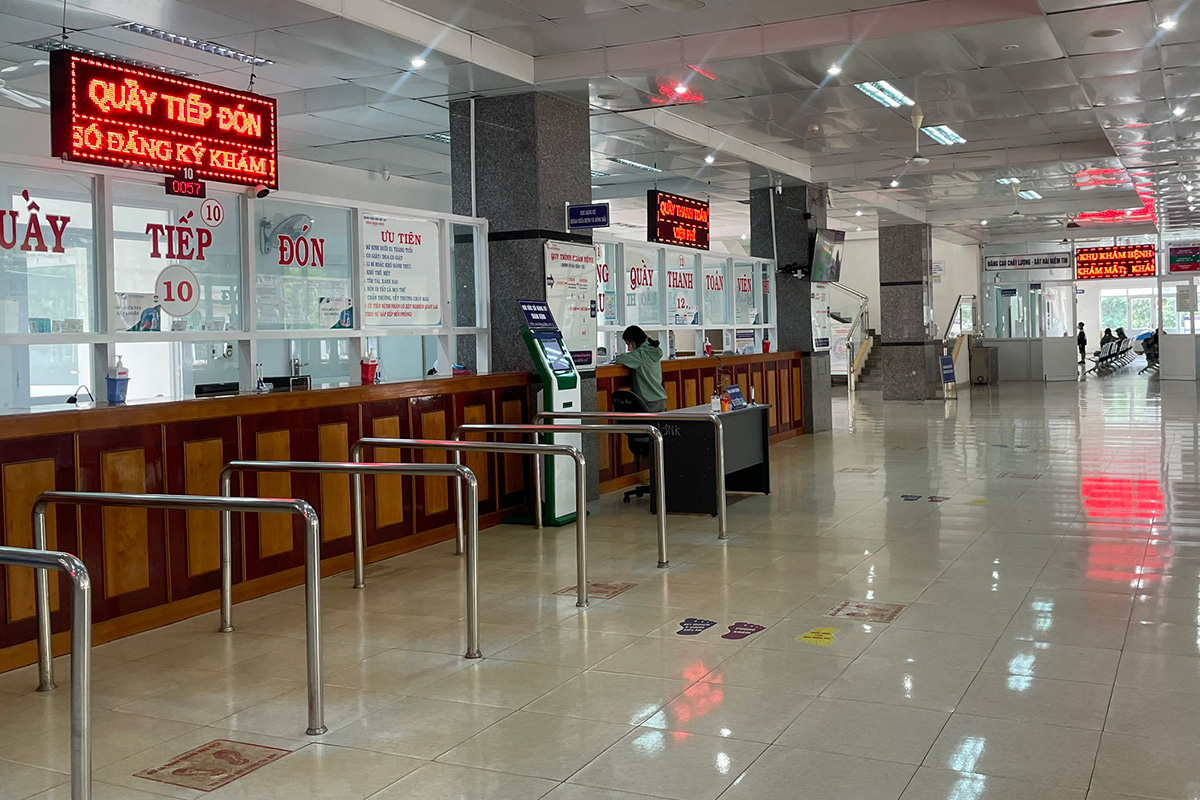Two days ago, the children, who had caught and cooked the toad, were taken to a local health station for first aid before being transferred to the Gia Lai Children's Hospital. They reported only tasting the toad, not consuming a large amount. Doctors diagnosed them with toad poisoning.
On 5/9, Gia Lai Children's Hospital leadership reported that two children have been discharged, and the remaining 7 are in stable condition but remain hospitalized for treatment. No critical cases were reported.
 |
Gia Lai Children's Hospital, where the 9 poisoned children were treated. Photo: Ngoc Oanh |
Gia Lai Children's Hospital, where the 9 poisoned children were treated. Photo: Ngoc Oanh
Le Trong Phuc, chairman of the Ia Dom Commune People's Committee (UBND), stated that local residents have limited awareness about the toxicity of toads and are often careless. Commune officials are educating and warning residents, urging anyone who has consumed toad meat to seek medical attention.
While toad meat itself is not poisonous, the skin, liver, eggs, pus, eyes, and nerve glands (along the spine) contain toxins, including tetrodotoxin and bufotenin, which can be fatal. These toxins are not destroyed even when cooked at high temperatures, making them a poisoning risk.
Depending on the level of poisoning, symptoms can range from fatigue, nausea, vomiting, and limb pain to more severe effects like cardiac arrhythmia, hypotension, hallucinations, convulsions, respiratory arrest, and cardiac arrest if not treated promptly.
Tran Hoa












